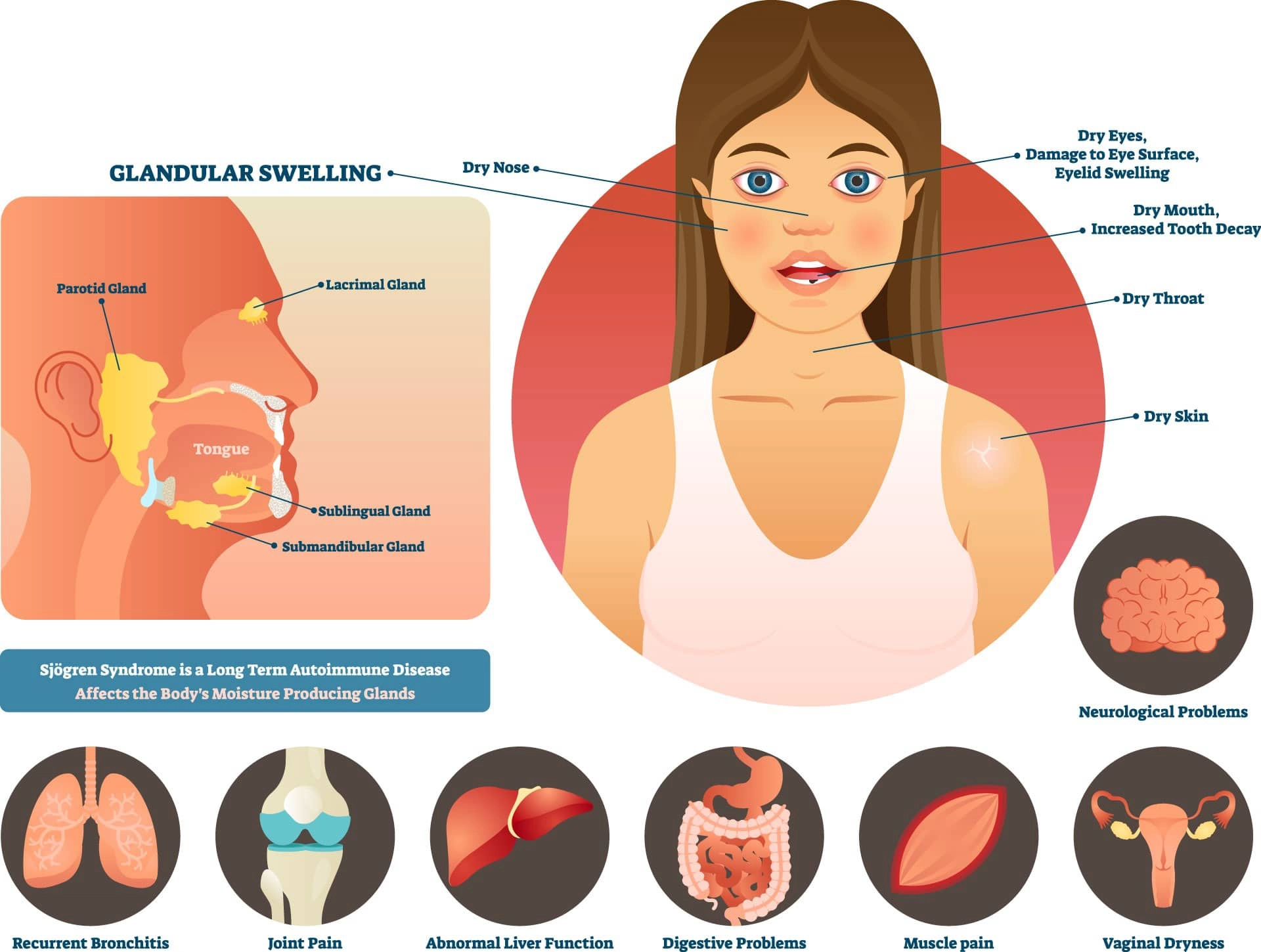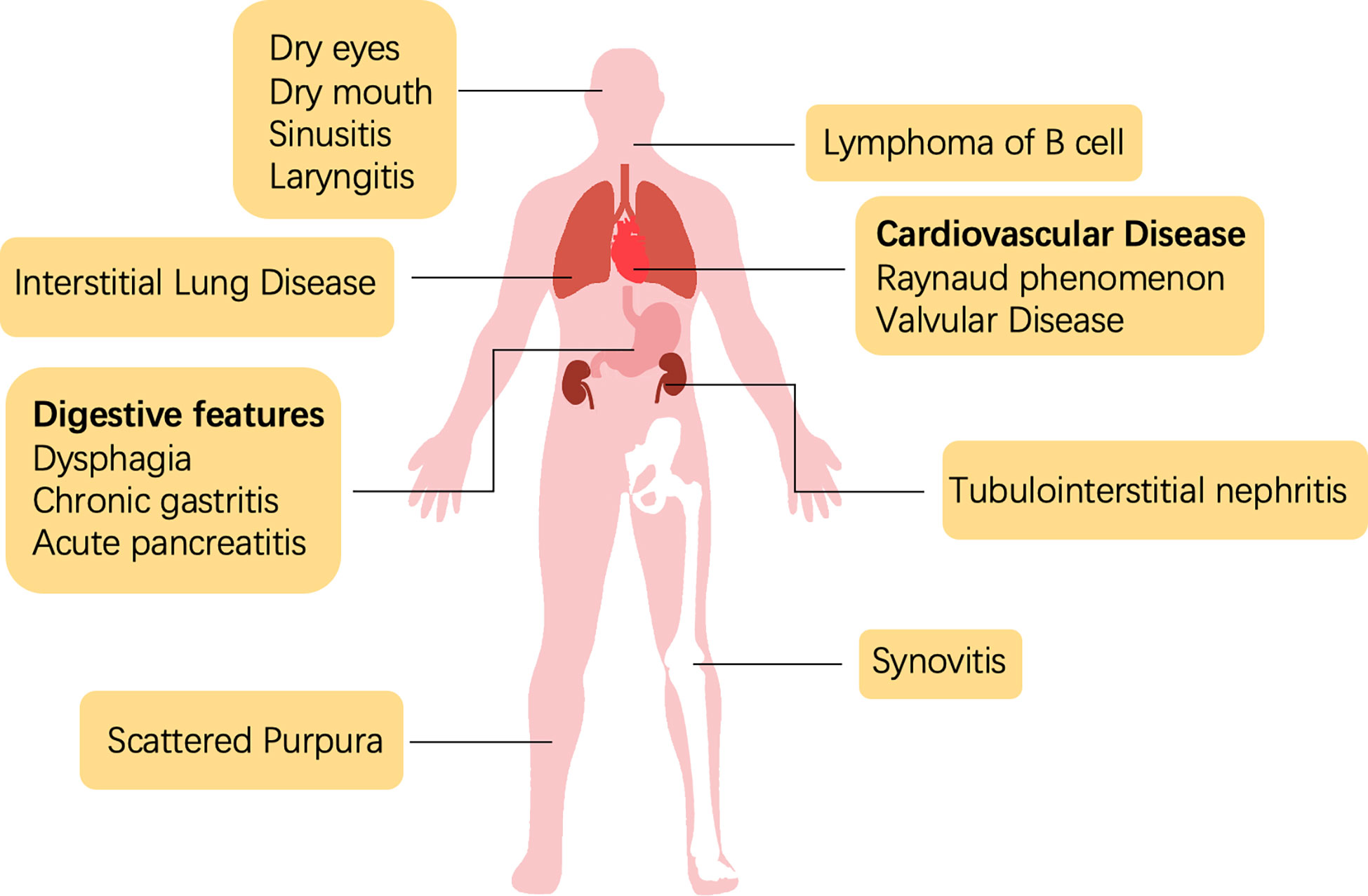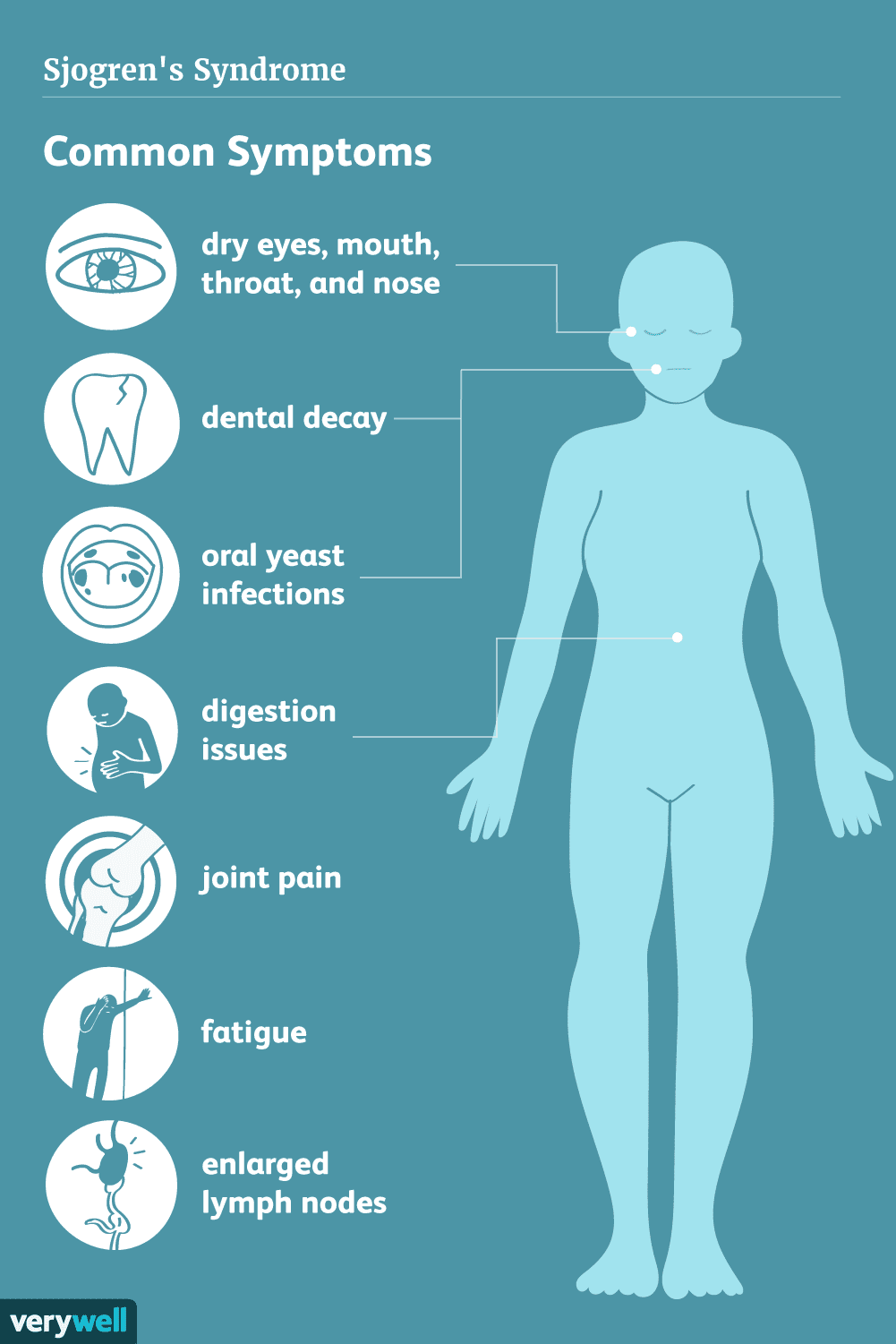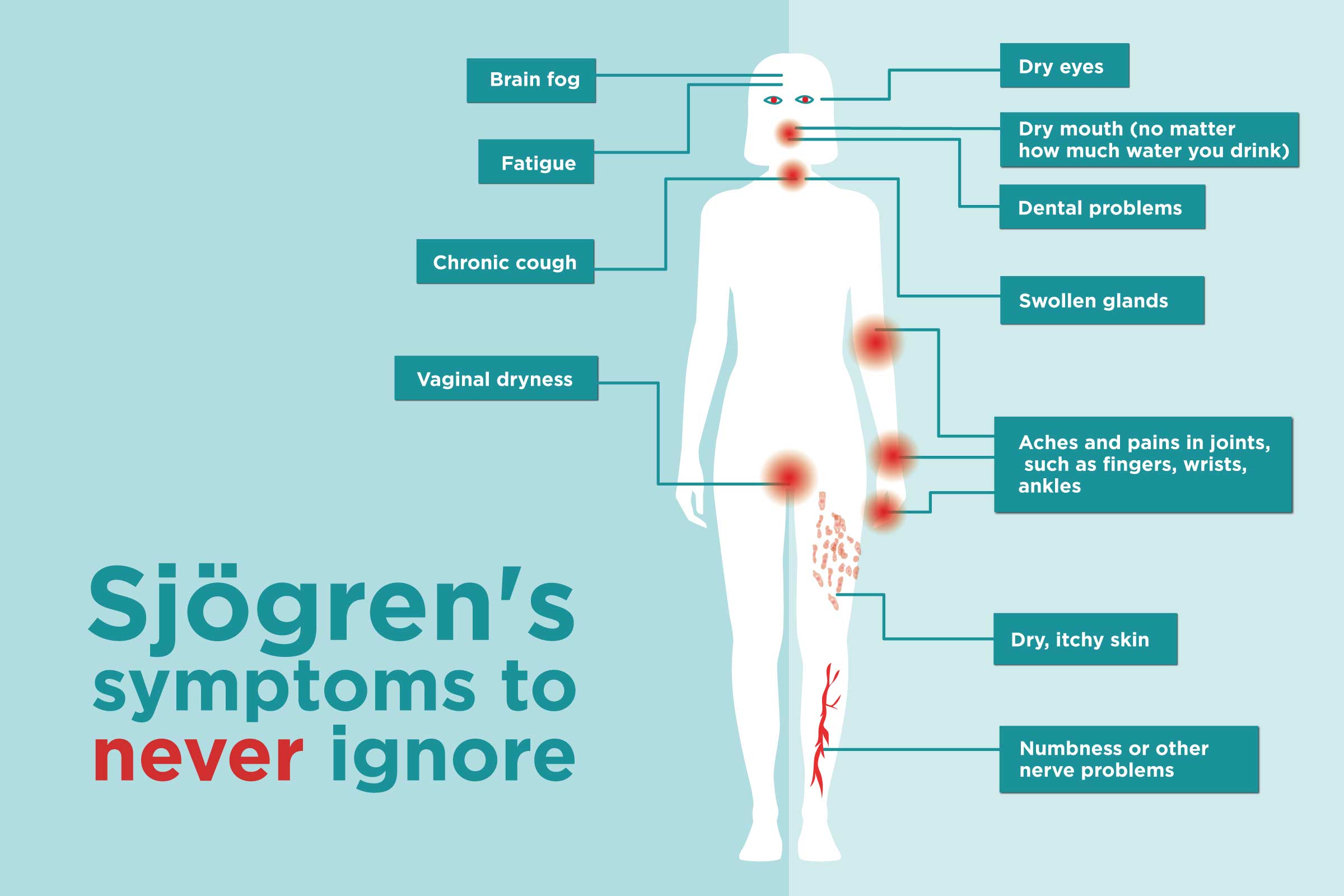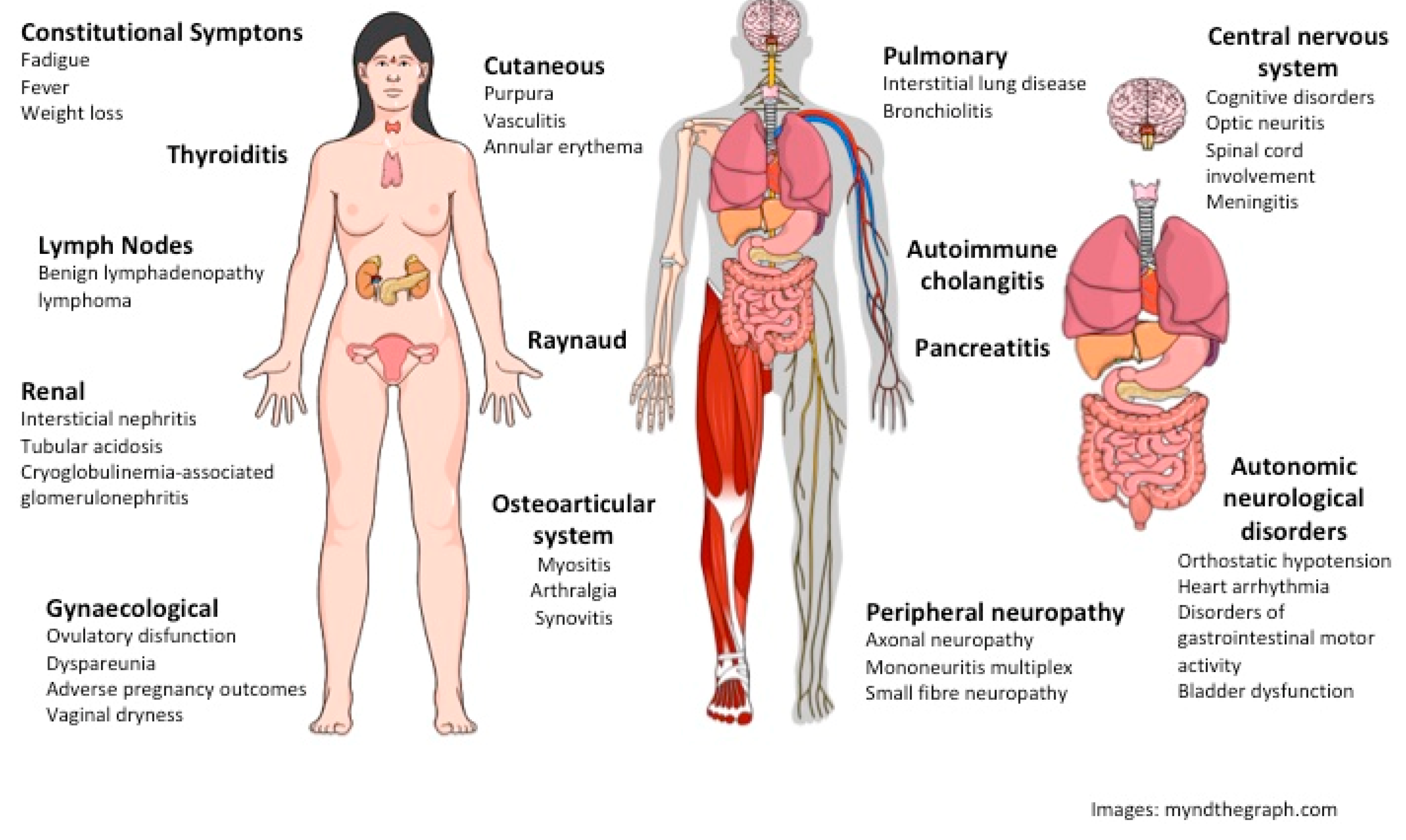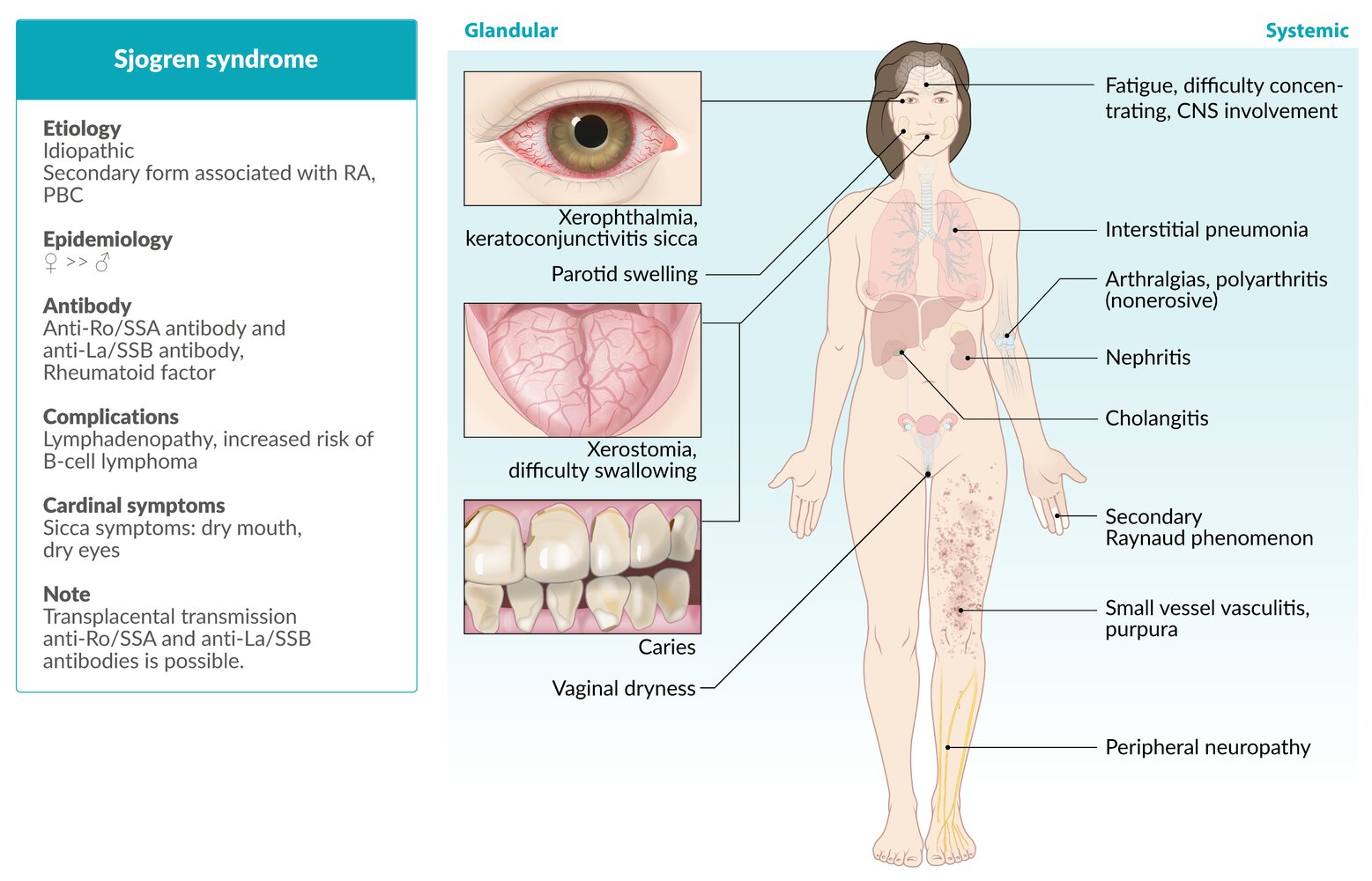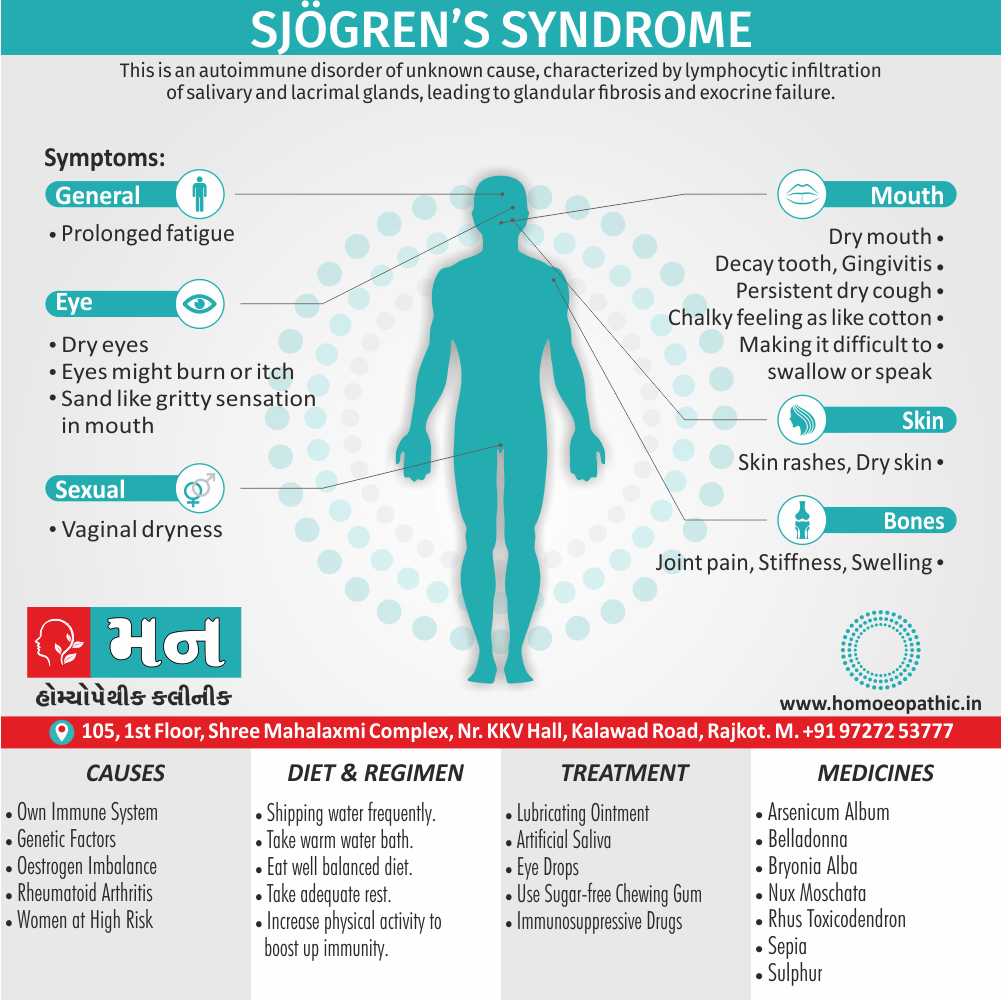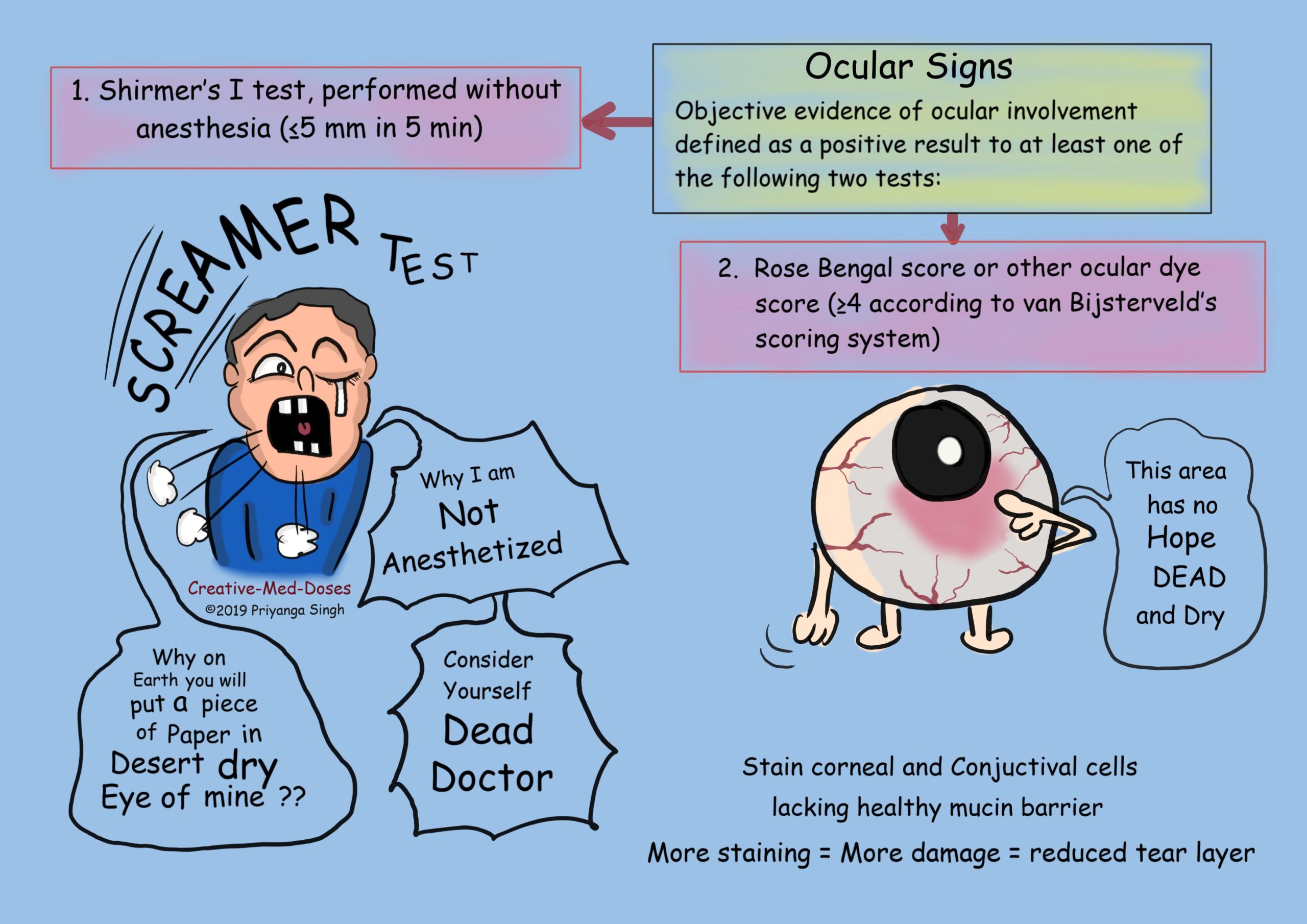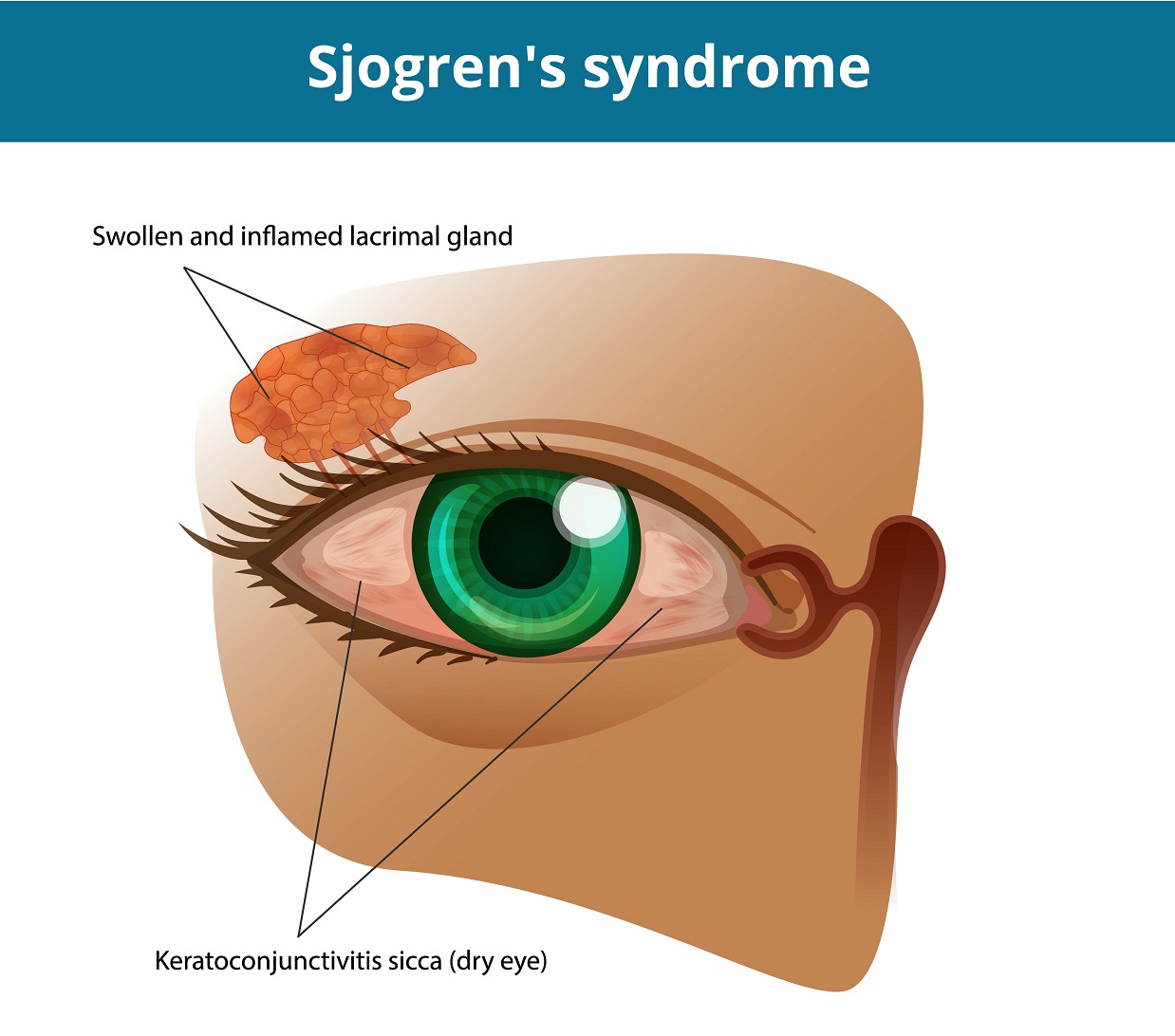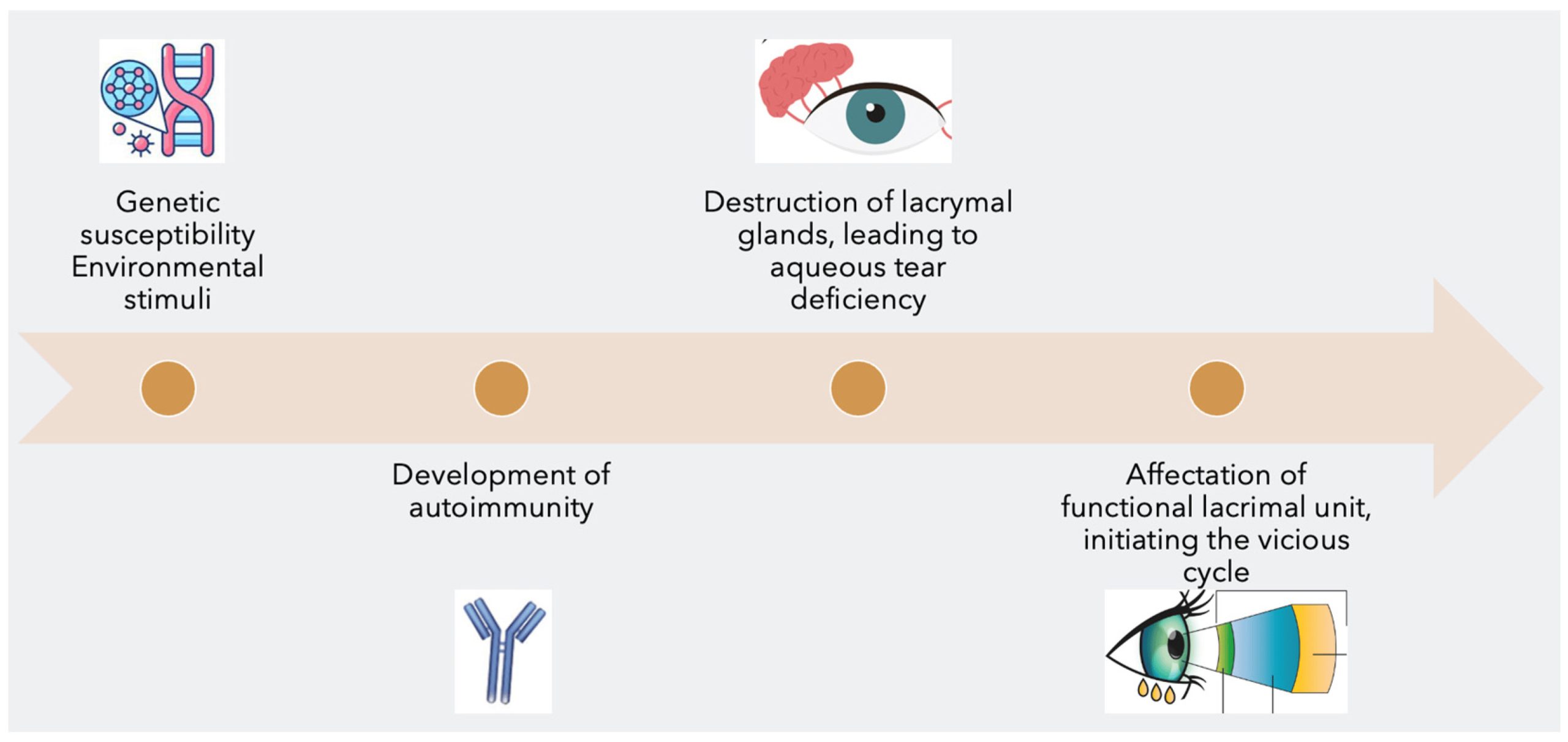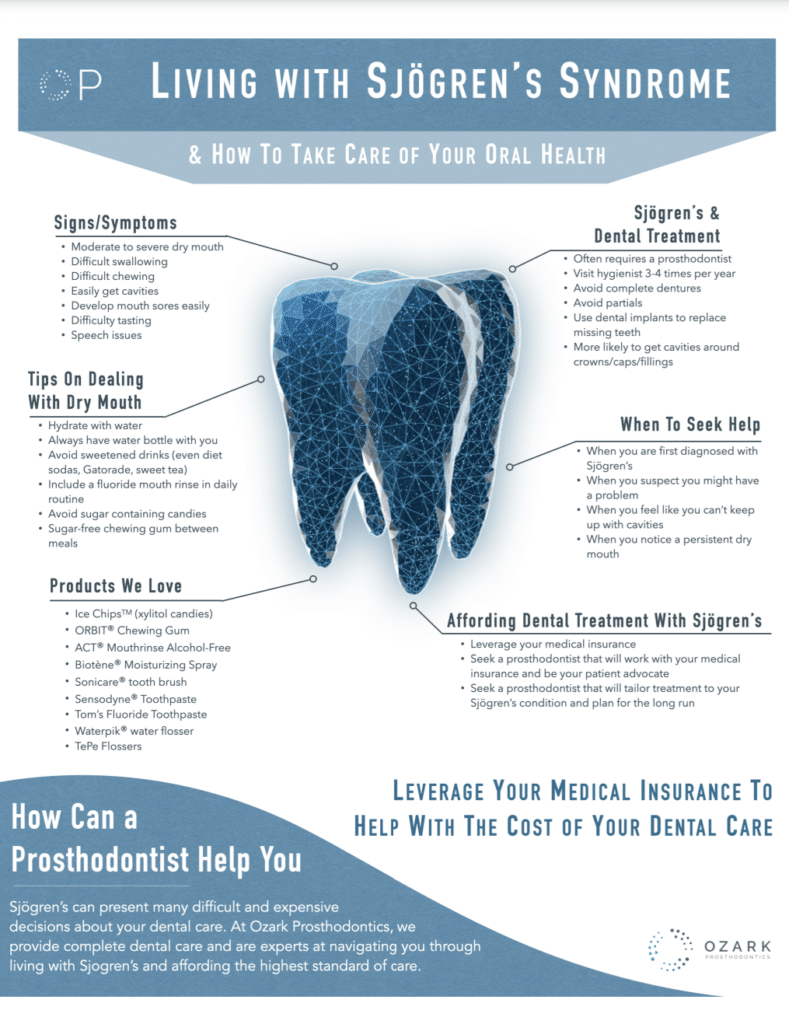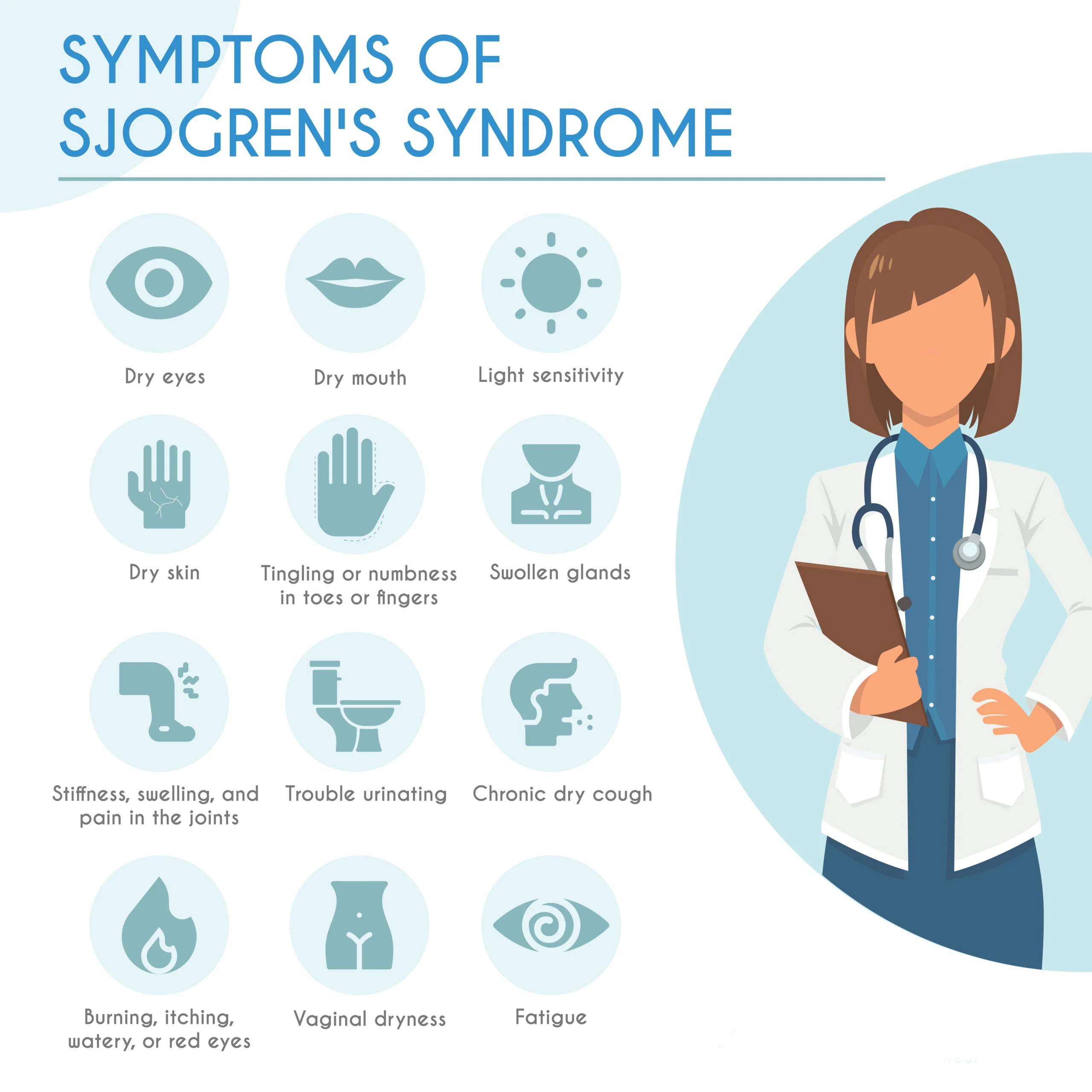
What is Sjögren’s syndrome?
Sjögren’s syndrome is an autoimmune disorder, where the immune system attacks the body’s own healthy cells. It typically attacks the glands that normally produce tears, saliva and sweat. Other parts of the body may also be affected.
The cause of Sjögren’s syndrome is unknown. It is more common in women, people over 40 and those who have rheumatic disease, like rheumatoid arthritis or lupus.
Most people with Sjögren’s syndrome are able to live normally, without any serious complications, especially if they take care to manage their symptoms.
What are the symptoms of Sjögren’s syndrome?
People with Sjögren’s syndrome can have:
- dry eyes, including a painful burning, itchy or gritty feeling
- a dry mouth, making it difficult to swallow, speak or eat dry foods
- swelling of the glands in the face and neck areas
Eye and mouth dryness can also increase the risk of eye infections and dental problems.
Some people with Sjögren’s syndrome also get:
- joint pain, swelling and stiffness
- dry skin or skin rash
- vaginal dryness
- persistent dry cough
- prolonged fatigue
Occasionally the liver and kidneys are affected. A few people will also develop lymphoma (cancer of the lymph nodes).
How is Sjögren’s syndrome diagnosed?
Besides symptoms, Sjögren’s syndrome is diagnosed through tests, including:
- Schirmer’s test — to check whether the eyes are producing enough tears
- blood tests — to check for antibodies common in Sjögren’s syndrome
- imaging to test how the salivary glands are working
- biopsy — a small sliver of tissue from the lip is checked for presence of inflammatory cells
How is Sjögren’s syndrome treated?
There is no cure for Sjögren’s syndrome. Treatments to relieve symptoms can involve medications to increase the production of saliva and treat complications like arthritis.
Surgery is an option for some people, to stop the eyes draining tears.
Your doctor may also prescribe medicines, such as non-steroidal anti-inflammatory drugs (NSAIDs) or medicines that suppress the immune system.
It is important to see your doctor or rheumatologist (joint specialist) regularly to make sure the condition stays well-managed.
There are also ways you can manage your symptoms:
- dry eyes — use artificial tears or an eye lubricant; regular check-ups with an ophthalmologist (eye specialist), wear protective eye wear to avoid exposure to the wind or sun
- dry mouth — have frequent sips of water; avoid drinking alcohol; use artificial saliva, mouth rinses, sugarless gum or lozenges; keep your mouth very clean, limit sugar, have regular check-ups with a dentist
- general dryness — increase indoor humidity; use preservative-free moisturiser for skin; avoid drying conditions such as drafts from heaters and air conditioners, use a saline spray for a dry nose, avoid exposure to dusty or windy weather


